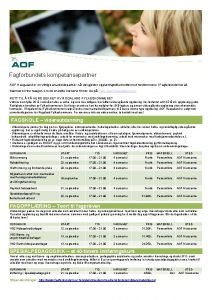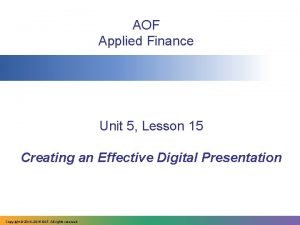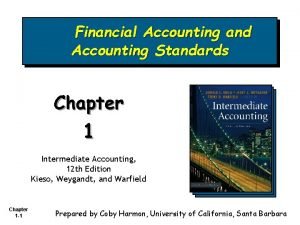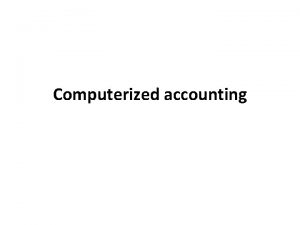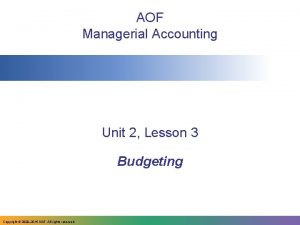AOF Principles of Accounting Unit 1 Lesson 3







- Slides: 7

AOF Principles of Accounting Unit 1, Lesson 3 Regulatory Agencies/GAAP Copyright © 2008– 2011 National Academy Foundation. All rights reserved.

There are good reasons for regulations in the accounting industry • • Regulation defines and promotes standards and expectations in the industry. Impartial regulators can ensure a “level playing field”—fairness —for those affected by accounting. Who should enforce accounting industry regulations? Public and private regulators ensure the standards of the accounting industry are met.

The IRS enforces tax laws The Internal Revenue Service (IRS): • Collects taxes • Has powers of enforcement—can levy fines and confiscate property • The relationship between the IRS and businesses or individuals is mandatory

The SEC protects investors The SEC (Securities and Exchange Commission): • • • Protects investors and makes markets run smoothly Requires disclosures and has powers of enforcement Relies on the FASB to generate ideas which become regulations

The FASB establishes accounting principles that public companies must follow The Financial Accounting Standards Board (FASB) is a private not-for-profit organization that develops generally accepted accounting principles (GAAP). • • Includes accounting guidelines used to create laws to protect individuals GAAP guidelines are purposefully general so they may be usable to a wide variety of companies

Other organizations such as the AICPA also regulate accounting The American Institute of Certified Public Accountants (AICPA): • Creates and administers the CPA exam • Defines, monitors, and enforces audit standards and behavioral guidelines for CPAs • Provides educational materials for its members What are the pros and cons of public and private regulatory systems?

Financial reports must be objective, consistent, and unbiased There are seven principles that guide all other rules that accountants follow: • Principle of regularity or principle of consistency • Principle of sincerity • Principle of permanence of methods • Principle of non-compensation • Principle of prudence • Principle of continuity • Principle of periodicity
